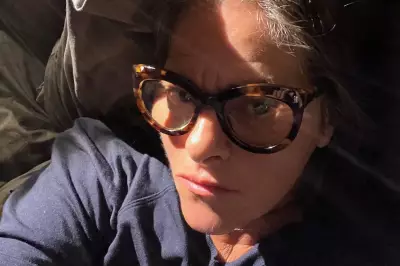
Horror maestro Stephen King has thrown a curveball at fans and filmmakers alike, publicly declaring his desire for a significant alteration to the cinematic ending of his terrifying short story, 'The Boogeyman'. The film, a box office hit for 20th Century Studios, has captivated audiences with its tale of a monstrous entity that preys on grief.
Despite the movie's success and critical acclaim, King took to social media to voice his singular critique. The author's surprising suggestion isn't about a plot hole or a character flaw, but rather the final, chilling moments that leave audiences staring into the abyss.
The Director's Defensive Stance
Director Rob Savage, the visionary behind the acclaimed 'Host', crafted an ending that diverges from King's original text. In the film, the terrifying entity is seemingly vanquished, only for a final, gut-wrenching shot to reveal its lingering presence in the shadows of the grieving family's home.
This deliberate change was designed to leave a lasting, unsettling impression on viewers. Savage defended his creative decision, arguing that a truly conclusive ending would undermine the very essence of the boogeyman myth—a fear that never truly dies.
King's Controversial Preference
In a move that has sparked fervent debate among horror aficionados, King proposed a different finale. The author suggested the film should have concluded moments earlier, with the protagonists' fate left more ambiguously—and perhaps more hopefully—in the balance.
This preference for a less definitive, more open-ended conclusion aligns with a classic horror trope that King himself has masterfully employed throughout his career, allowing the audience's imagination to conjure the true terror.
A Hit Despite the Critique
King's critique comes from a place of admiration, as he was overwhelmingly positive about the overall adaptation. He lavished praise on the performances, particularly Sophie Thatcher's portrayal of a teenager grappling with profound loss, and the film's ability to translate palpable dread from page to screen.
The author's public endorsement undoubtedly contributed to the film's commercial success, proving that even the master himself can appreciate a new interpretation of his work, even if he yearns for one crucial tweak.






